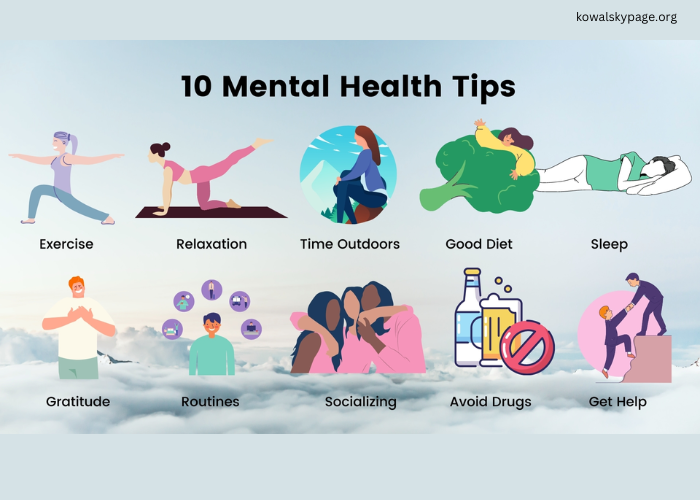In today’s fast-paced world, maintaining both physical and mental health can be challenging. However, with a few consistent practices, you can achieve a balanced and healthy lifestyle. Here are some essential tips to help you take care of your body and mind:
1. Prioritize a Balanced Diet
Your body needs a variety of nutrients to function optimally. Incorporate a mix of fruits, vegetables, lean proteins, whole grains, and healthy fats into your meals. Avoid excessive consumption of processed foods, sugar, and unhealthy fats, which can lead to long-term health problems. Staying hydrated is equally crucial—aim for at least 8 glasses of water daily.
2. Stay Physically Active
Regular exercise is vital for maintaining physical health. Aim for at least 150 minutes of moderate aerobic activity or 75 minutes of vigorous activity each week, as recommended by health experts. Activities like walking, jogging, yoga, or strength training not only improve physical fitness but also boost mental well-being by releasing endorphins.
3. Prioritize Sleep
Sleep is often overlooked but is essential for overall health. Adults should aim for 7-9 hours of quality sleep each night. Establish a bedtime routine, avoid screen time before bed, and create a sleep-friendly environment to ensure restorative rest.
4. Manage Stress Effectively
Chronic stress can take a toll on both physical and mental health. Practice stress management techniques such as mindfulness meditation, deep breathing exercises, or journaling. Engaging in hobbies and spending time with loved ones can also help alleviate stress.
5. Foster Social Connections
Strong social ties contribute significantly to mental health. Maintain relationships with family and friends, and don’t hesitate to seek support when needed. Joining community groups or volunteering can also provide a sense of belonging and purpose.
6. Schedule Regular Check-ups
Preventive healthcare is key to catching potential issues early. Schedule regular check-ups with your healthcare provider to monitor your physical health and address any concerns promptly.
7. Cultivate a Positive Mindset
Mental health thrives in a positive environment. Practice gratitude, focus on the positives, and set realistic goals. Avoid self-criticism and allow yourself to celebrate small victories.
8. Limit Harmful Habits
Reduce or eliminate harmful habits such as smoking, excessive alcohol consumption, or substance abuse. These behaviors can have severe long-term impacts on both physical and mental health.
9. Stay Informed but Balanced
Being informed about health and wellness is important, but avoid obsessing over every new trend or piece of advice. Stick to evidence-based practices and consult professionals for personalized guidance.
10. Seek Help When Needed
If you’re struggling with mental health challenges, don’t hesitate to seek professional help. Therapy, counseling, or support groups can provide valuable tools and perspectives to help you navigate difficulties.
By integrating these tips into your daily routine, you can create a strong foundation for both physical and mental well-being. Remember, small, consistent steps can lead to significant, lasting improvements in your health.





